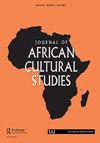African Cultural Imaginaries and (Post-)Development Thought
IF 0.9
2区 社会学
Q2 CULTURAL STUDIES
引用次数: 0
Abstract
In this special issue, we read discourses and practices of development in Africa through the lens of African literature and cultural imaginations. The issue brings together a group of scholars at universities in Africa and Europe, from the fields of literary studies, African studies, global history and social science. In their articles, they point out how development thought and practice can be theorised, contested and enriched through literary and cultural analysis. The thinking around “development” has occupied intellectuals, politicians, economists, journalists, activists and writers in Africa and the world for almost a century now – whether affirmatively in the sense of a reflection on what societies need to develop their potential and provide a good life for all; or, controversially, in the sense of a critique of the continued colonisation of national economies, populations, of life and environment through an uneven integration into globalised capitalism in the name of “development” and the inherent “coloniality of power” (Ndlovu-Gatsheni 2013). In all these considerations, one would think, cultural imaginaries play a decisive role. However, the opposite was and is often the case, as the agendas of governments, and of national and international organisations in the field of global development, have time and again shown. Indeed, in Africa in particular “culture” has often been constructed as an obstacle and as backward in the discourse on African development (see Odhiambo 2002). For the visionary activist and thinker WangarĩMaathai (2010), recognising this continued devaluation of cultural knowledge in postcolonial Kenya was tantamount to discovering culture as the “missing link”, which would allow us meaningfully to connect the struggle for economic rights and democratisation with the struggle for environmental protection in the Civic and Environmental Education seminars developed with impoverished peasants. What Maathai proposed was an understanding of ecological and economic development that starts from cultural self-knowledge – kwimenya in Gĩkũyũ – as the key to change (Maathai 2010, 170–171). Similarly, E. S. Atieno Odhiambo advocated a research practice “to demonstrate ways of raising cultural questions as a valid approach to critiquing development from above and conceptualizing development from below” (2002, 11). One way to explore how cultural questions can inform a decolonial critique of development is to engage literature, in agreement with Adebanwi (2014), as a privileged site of social thought in Africa, in productive dialogue with development research. For decades, writers, poets and thinkers in Africa and across the diaspora have witnessed the transformation of their worlds through ideologies and practices of directed change, conceived非洲文化想象与(后)发展思想
在这期特刊中,我们通过非洲文学和文化想象的视角阅读了非洲发展的话语和实践。这期杂志汇集了非洲和欧洲大学的一群学者,他们来自文学研究、非洲研究、全球历史和社会科学领域。在他们的文章中,他们指出了如何通过文学和文化分析来对发展思想和实践进行理论化、争论和丰富。近一个世纪以来,围绕“发展”的思考一直占据着非洲和世界各地的知识分子、政治家、经济学家、记者、活动家和作家的位置——无论是肯定地反思社会需要什么来发展自己的潜力,为所有人提供美好生活;或者,有争议的是,通过以“发展”和固有的“权力殖民主义”的名义不均衡地融入全球化资本主义,对国家经济、人口、生活和环境的持续殖民进行批判(Ndlovu Gatsheni,2013)。人们会认为,在所有这些考虑中,文化想象力起着决定性的作用。然而,正如各国政府、国家和国际组织在全球发展领域的议程一再表明的那样,过去和现在的情况往往相反。事实上,特别是在非洲,“文化”在关于非洲发展的讨论中经常被视为一种障碍和落后(见Odhiambo,2002年)。对于富有远见的活动家和思想家WangarĩMaathai(2010)来说,认识到后殖民时期肯尼亚文化知识的持续贬值等于发现文化是“缺失的一环”,这将使我们能够有意义地将争取经济权利和民主化的斗争与为贫困农民举办的公民和环境教育研讨会中的环境保护斗争联系起来。Maathai提出的是对生态和经济发展的理解,从文化自知之明开始——Gĩkũy \361中的kwimenya——作为改变的关键(Maathai 2010170-171)。同样,E.S.Atieno Odhiambo倡导一种研究实践,“展示提出文化问题的方法,以此作为从上批评发展和从下概念化发展的有效方法”(2002,11)。探索文化问题如何为非殖民化的发展批判提供信息的一种方法是,与非洲社会思想的特权场所Adebanwi(2014)一致,让文学与发展研究进行富有成效的对话。几十年来,非洲和散居海外的作家、诗人和思想家见证了他们的世界通过意识形态和定向变革实践的转变
本文章由计算机程序翻译,如有差异,请以英文原文为准。
求助全文
约1分钟内获得全文
求助全文
来源期刊

Journal of African Cultural Studies
Multiple-
CiteScore
1.70
自引率
10.00%
发文量
13
期刊介绍:
The Journal of African Cultural Studies publishes leading scholarship on African culture from inside and outside Africa, with a special commitment to Africa-based authors and to African languages. Our editorial policy encourages an interdisciplinary approach, involving humanities, including environmental humanities. The journal focuses on dimensions of African culture, performance arts, visual arts, music, cinema, the role of the media, the relationship between culture and power, as well as issues within such fields as popular culture in Africa, sociolinguistic topics of cultural interest, and culture and gender. We welcome in particular articles that show evidence of understanding life on the ground, and that demonstrate local knowledge and linguistic competence. We do not publish articles that offer mostly textual analyses of cultural products like novels and films, nor articles that are mostly historical or those based primarily on secondary (such as digital and library) sources. The journal has evolved from the journal African Languages and Cultures, founded in 1988 in the Department of the Languages and Cultures of Africa at the School of Oriental and African Studies, London. From 2019, it is published in association with the International African Institute, London. Journal of African Cultural Studies publishes original research articles. The journal also publishes an occasional Contemporary Conversations section, in which authors respond to current issues. The section has included reviews, interviews and invited response or position papers. We welcome proposals for future Contemporary Conversations themes.
 求助内容:
求助内容: 应助结果提醒方式:
应助结果提醒方式:


